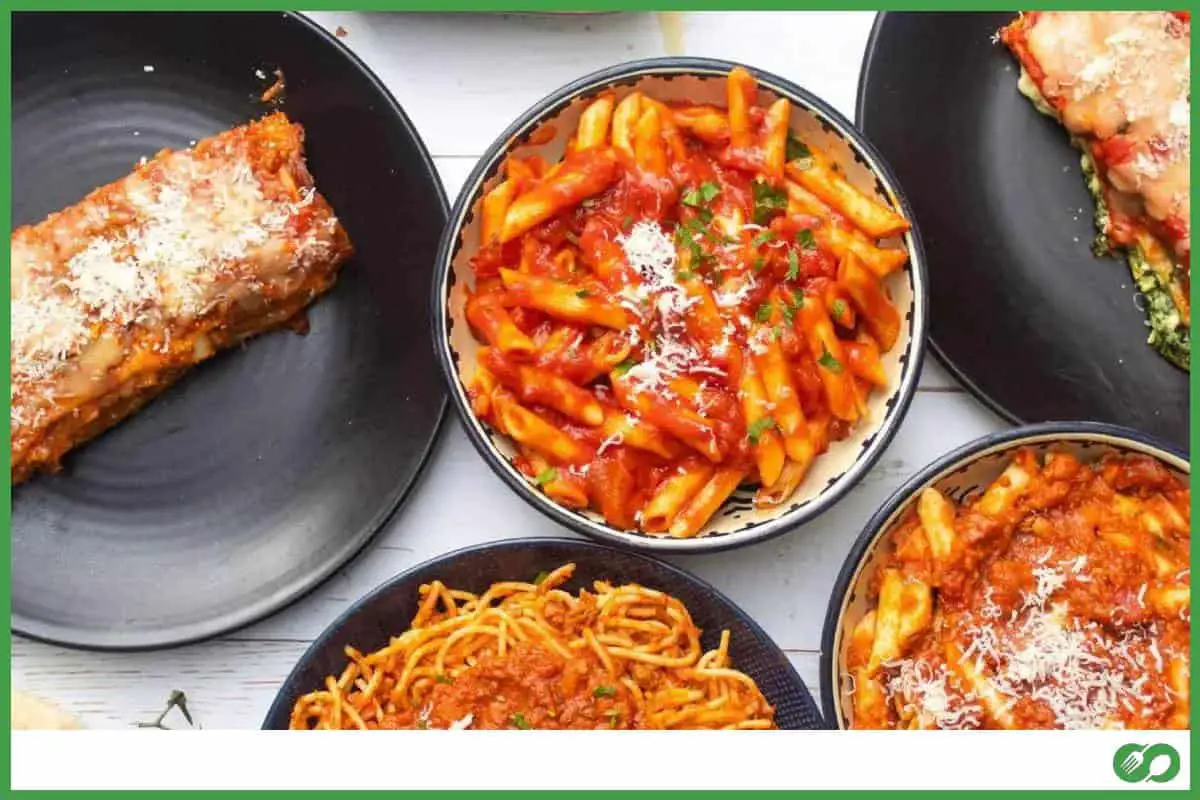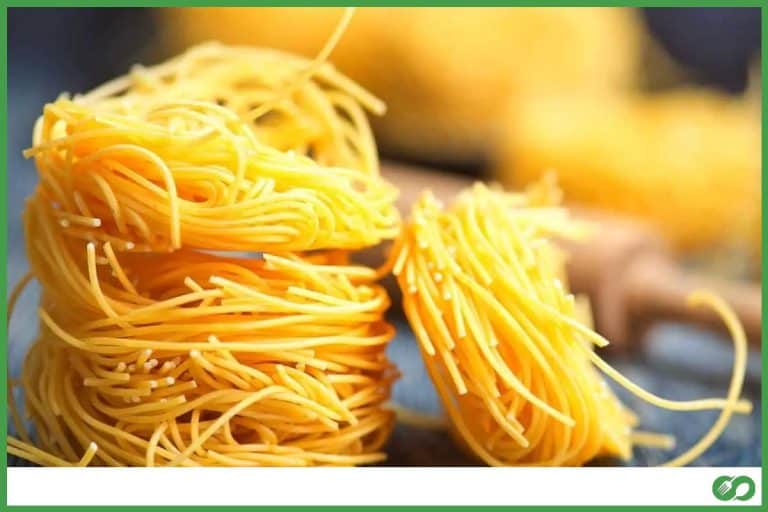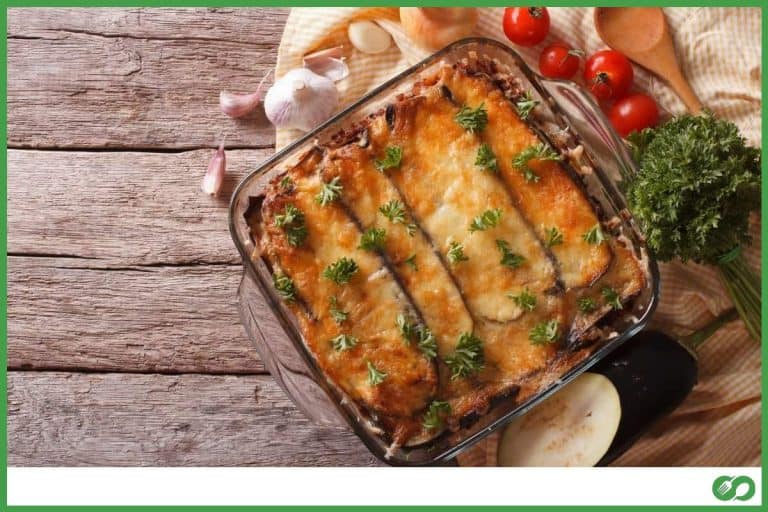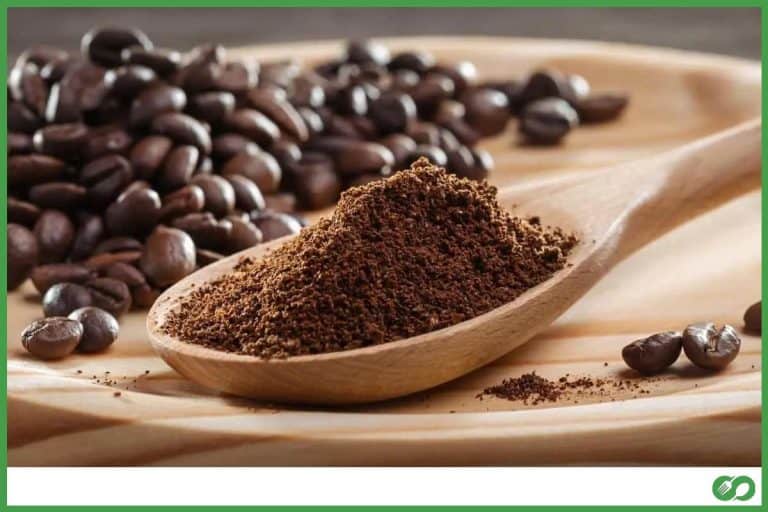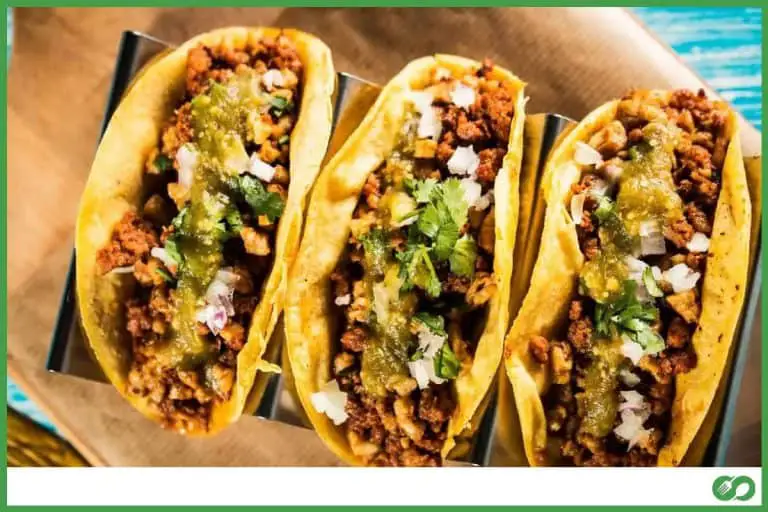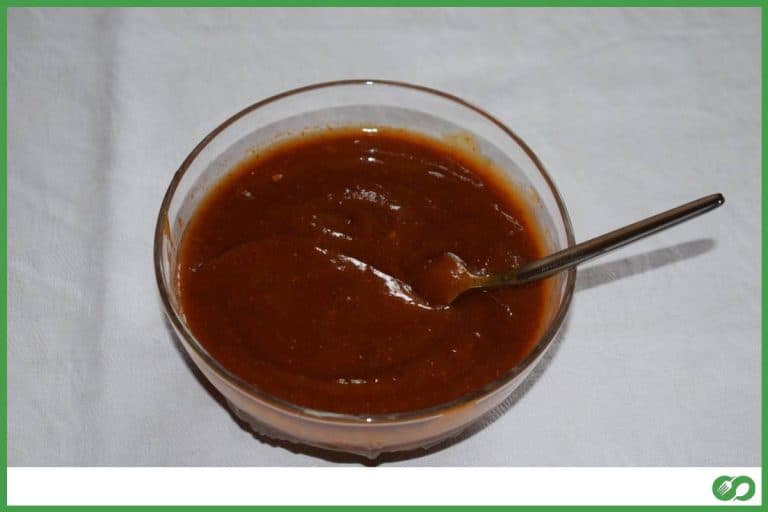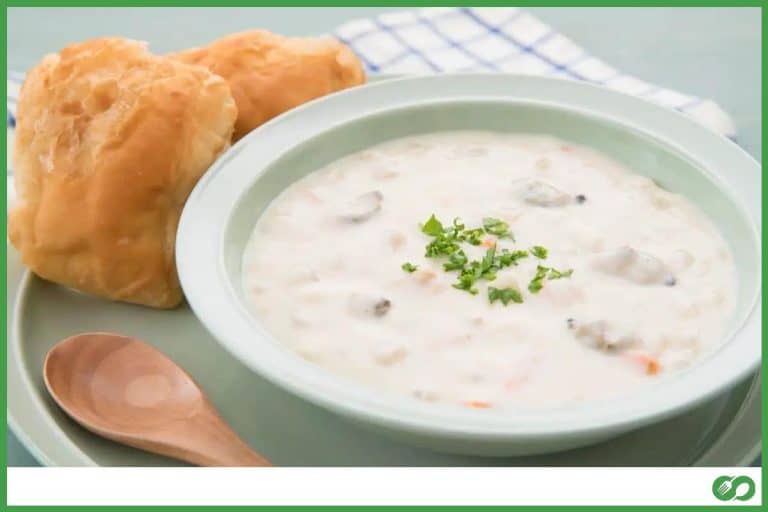Can You Survive Only Eating Pasta Every Day?
This post may contain affiliate links which means that, if you choose to make a purchase, I may earn a small commission at no extra cost to you.
Pasta is a gift to the world from the Italian Peninsula. I can’t get enough of it and that’s why I often try out different types of pasta and pasta sauces and mix them up in hopes of creating something odd and wonderful. However, getting obsessed with pasta comes with a lot of bad consequences, especially if you eat it every day.
Most pasta dishes are primarily made of carbs and when you live on carbs, you miss out on other important macronutrients that your body needs. Your body doesn’t get enough amino acids and Vitamin C and that could lead to organ failure and diseases like scurvy. Your lifespan reduces drastically.
However, it’s not all black and white. While most pasta dishes are primarily carbs, you also have the freedom of topping them with all kinds of ingredients. That’s why we need to dive deeper.
Your body suffers when on a pasta-only diet
As I mentioned above, most pasta dishes are primarily carbs. However, your body needs all types of essential macronutrients and the micronutrients that it can’t produce itself. That means your body needs protein, carbohydrates, fats, minerals, and vitamins for a healthy diet. Proteins aren’t just for your muscles, but make up the building blocks of your body while healthy fats support building cells, muscle movement, and blood clotting.
On the other hand, micronutrients like vitamins and minerals help strengthen your bones, maintain healthy blood pressure, boost your immune system, keep you free from diseases, and much more. When you eat only pasta, you eat mostly carbs with a little bit of fat, protein, and some micronutrients. Let’s check out the detrimental effects this may have on your body.
Increased risk of diabetes
From family history to lifestyle choices, there are a lot of things that affect your chances of developing diabetes. Some studies indicate that when you’re on a high-carbohydrate diet, you may be at a higher risk of developing diabetes. Traditional pasta is full of carbs and when you eat only pasta every day, your body is pumped full of carbs and may be at risk.
Higher risk of heart diseases
Most refined food items that are highly processed aren’t good for your body. This is especially true for the white variety of refined pasta. The American Journal of Epidemiology published a study where it was found that people with high-carb diets mostly consisting of refined grains were exposed to a higher risk of heart disease. Eating pasta every day would stimulate your body to make a lot of insulin. When this goes on for months or years, insulin won’t be able to use the carbs and that would increase bad blood fats. This makes you more prone to heart disease.
You don’t get key nutrients
I enjoy pasta a bit too much. But I won’t choose to have it three times a day since I would miss out on many key nutrients. While your body requires micronutrients in trace amounts, those minerals and vitamins still play a vital role in everyday life. For instance, if your body doesn’t get enough Vitamin B12, new red blood cells produced by your body are larger and function as they should. This results in vitamin deficiency anemia.
High blood pressure
Regular consumption of refined carbs present in refined pasta also increases your blood pressure. When you develop high blood pressure, your body is at a higher risk of developing cardiovascular conditions like heart disease. That’s why it’s important to keep your blood pressure in check while cutting down on pasta.
You gain weight
Eating pasta in the right portions occasionally isn’t bad for you. I like to cook some delicious pasta for my family at least once a week. However, when you overeat pasta or consume only pasta, you’re automatically increasing your calorie intake due to the high amount of carbohydrates.
When you put in too many calories, you gain unwanted weight. That’s why it’s very important to be careful with your portions when you’re consuming pasta or any other carb-heavy dish. You should also work out or invest in home workout kits to stay in shape and shed those extra calories.
Overworked pancreas
Too much of even the best thing can quickly turn it into poison. The same holds for pasta. Any kind of one-sided diet will cause long-term harm to your body. When you eat pasta every day, especially with creamy sauces, you consume a dangerous amount of carbohydrates and fats on a regular basis.
The increased glycemic load of your meal makes the pancreas work extra hard. When this continues for a long time, your overworked pancreas won’t be as efficient and functional anymore. That causes diabetes and all kinds of digestive problems. An overworked pancreas is also linked to mental health problems like anxiety and depression. In the worst-case scenario, you may develop diseases like pancreatic cancer or pancreatitis.
Consuming pasta every day in a healthy way
I love pasta. But I wouldn’t dare consume it every day or go on a pasta-only diet due to all those scary reasons listed above. However, if you can modify the pasta to get rid of all those flaws, it may work out for you. The goal is to get all the essential nutrients required by your body from the pasta.
Here’s a helpful chart that I’ve made with the help of data from the FDA. It informs you about the amounts of nutrients you need to consume or not exceed each day. Some of these values may be a bit different for you depending on your age, height, and the amount of daily exercise you get.
| Nutrient | Daily Value |
| Total carbohydrate | 275 g |
| Protein | 50 g |
| Fat | 78 g |
| Saturated fat | 20 g |
| Added sugars | 50 g |
| Dietary fiber | 28 g |
| Calcium | 1300 mg |
| Chloride | 2300 mg |
| Magnesium | 420 mg |
| Manganese | 2.3 mg |
| Phosphorus | 1250 mg |
| Potassium | 4700 mg |
| Sodium | 2300 mg |
| Folate | 400 mcg |
| Biotin | 30 mcg |
| Cholesterol | 300 mg |
| Copper | 0.9 mg |
| Iron | 18 mg |
| Iodine | 150 mcg |
| Zinc | 11 mg |
| Vitamin A | 900 mcg RAE |
| Vitamin B6 | 1.7 mg |
| Vitamin B12 | 2.4 mcg |
| Vitamin C | 90 mg |
| Vitamin D | 20 mcg |
| Vitamin E | 15 mg alpha-tocopherol |
| Vitamin K | 120 mcg |
Changing the nutritional profile of pasta
Pasta is usually made from refined white flour or whole-grain flour. You should always avoid refined flour since it’s mostly empty calories. On the other hand, a standard serving of cooked pasta (1 cup or 2 ounces) usually provides you with the following:
- Around 43 grams of carbohydrates with around 2-3 grams of fiber from the carbohydrate.
- Around 2 grams of fat.
- Around 8 grams of protein.
- Iron and Vitamin B6.
Just opting for whole-grain pasta puts you on a healthier path. I’m already on it and love the extra texture it adds to the pasta. However, if you’re trying to consume pasta every day, you need to make further changes and take in all the essential nutrients required by your body. Stick to olive oil and light sauces instead of opting for heavier and creamy sauces. You can be generous with the toppings and add nutritional ingredients like meat, leafy greens, and more to the mix.
If you want to go all the way out, you can cook healthy pasta salads with your choice of protein, crisp veggies, freshly shredded mozzarella, a light homemade dressing, and other such healthy ingredients. That way, you get a more balanced diet and won’t have to risk your health. Just adding a bit more lean meat or a vegan protein and some veggies can provide you with all the micronutrients you need and help you meet your body’s requirement for cholesterol, saturated fat, and protein.
Here’s a helpful tip. I always prefer to cook my pasta al dente. That means the pasta is a bit firm when chewed. That way, your insulin levels remain normal as the starch passes into your body more slowly.
Do I have a pasta addiction?
Eating a lot of pasta too often can make you addicted to it. Carbohydrates and food high in sugar stimulate the release of serotonin in your brain, your body’s natural “feel good” chemical. Consuming carb-heavy foods like pasta too often makes your body associate it with pleasure and crave more of it.
What should I eat when I crave pasta?
When you’re craving pasta, you can use spiralizers to shape veggies like sweet potato, squash, and zucchini into pasta. Otherwise, you can make the pasta healthier by limiting the portion, increasing veggies, reducing creamy and heavy sauces, and using light dressing or healthy oil.
Why are Italians so healthy despite consuming so much pasta?
While Italians have pasta as a core component of their cuisine and culture, their diet is also rich in lean meat, legumes, fruits, olive oil, and fresh fish. These foods make up the Mediterranean diet. It’s good for your brain and cardiovascular health and you’re less likely to put on weight.
Is Pasta a good survival food?
Raw uncooked pasta is energy-dense and shelf-stable as well. Moreover, it’s abundant and cheap. If stored properly, dried pasta can last for several years and can be prepared very easily by boiling it in water. That makes pasta one of the best survival foods.
How do I know if pasta is spoiled?
Cooked pasta doesn’t last for more than 3 to 5 days in the fridge and shouldn’t be consumed after that even if it doesn’t look spoiled. On the other hand, if dried or uncooked pasta crumbles upon touch, has a musty odor, or has mold on the surface, it is spoiled and shouldn’t be consumed.
Conclusion
Pasta made from whole grains is an excellent source of carbs and belongs in everyone’s kitchen. However, I would not choose to survive on it every day for no good reason. It is extremely bad for your health and I’m trying to get more fit as I get older.
You don’t get the right amounts of other essential nutrients from pasta and are at risk of developing several health conditions and diseases. So, unless you’re forced to do it, try to limit pasta to once a week or twice a month. I do that to make those delicious carbs even more savory and keep myself healthy.

